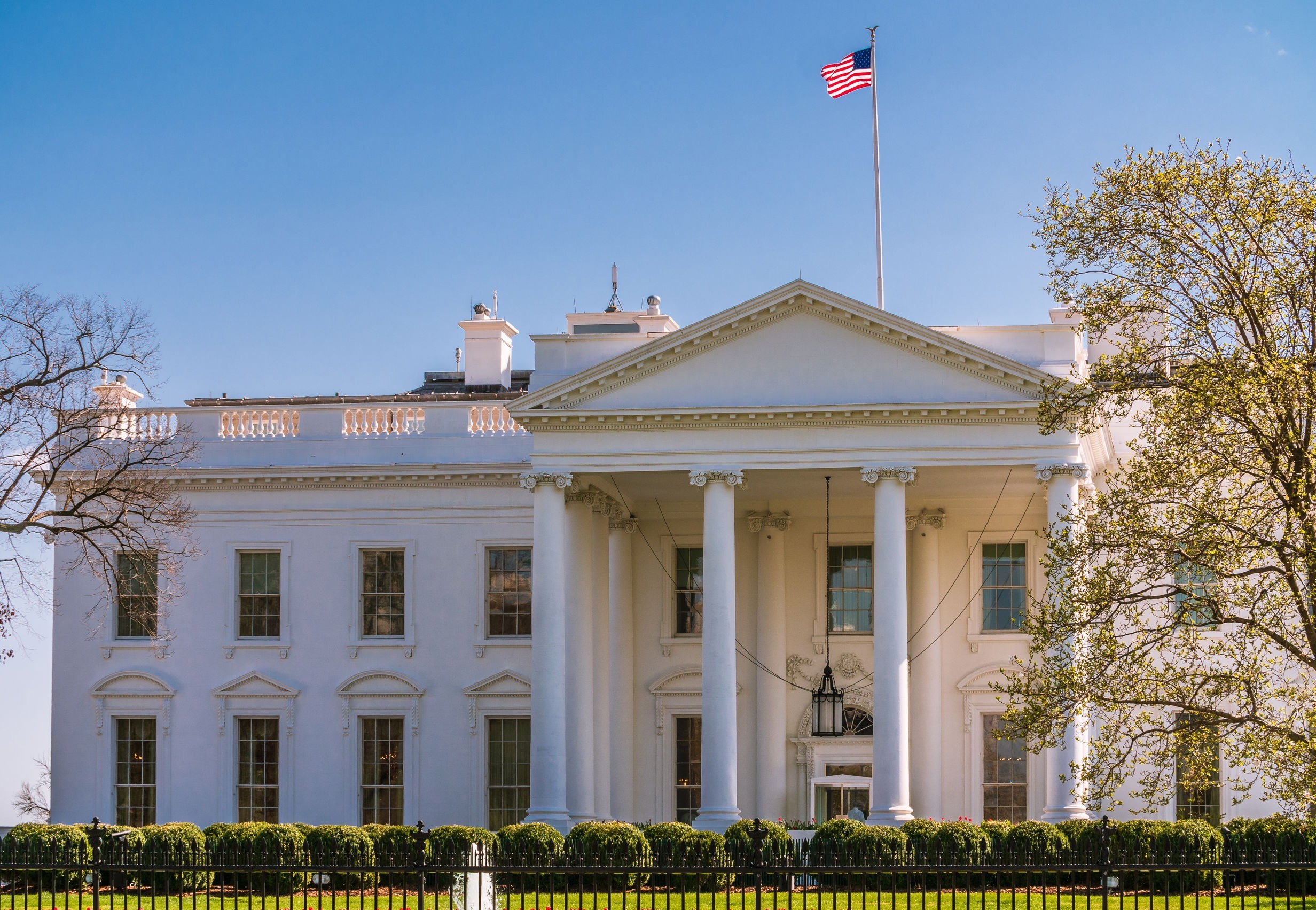The Scoop: Democrats’ post-election messaging highlights understanding during transition
Also: 2024 Election shows emergence of podcasts as trusted news source; Australian ambassador deletes anti-Trump tweets.

President Joe Biden described Vice President Kamala Harris’ loss to Donald Trump in the 2024 election as a “setback” but he urged Americans to unite and accept the results.
“We accept the country’s choice,” Biden said. “You can’t love your country only when you win. You can’t love your neighbor only when you agree.”
Both Harris and Biden said it was important for their supporters to continue their work.
“I do not concede the fight that fueled this campaign,” Harris said.
Why it matters: Change is scary – whether it’s in Washington, D.C. or a boardroom.
In the case of this election, both Biden and Harris often framed a potential Trump return to the White House as a threat to democracy. After Biden’s win in 2020, Trump delayed the transition, refusing to accept the results. Many of his supporters were involved in an insurrection at the Capitol.
“He’s willing to sacrifice our democracy, put himself in power,” Biden said in January.
Following any major shakeup, it’s important that leadership sends a message that highlights any understanding of those concerns and sympathizes with what they’re going through, offering reassurance where and if possible.
During her concession speech, Harris noted that accepting the results of an election “distinguishes democracy from monarchy or tyranny. And anyone who seeks the public trust must honor it.” At the same time,” she continued, “in this nation, we owe loyalty not to a president or a party, but to the Constitution of the United States, and loyalty to our conscience and to our God.”
“My allegiance to all three is why I am here to say, while I concede this election, I do not concede the fight that fueled this campaign—the fight: the fight for freedom, for opportunity, for fairness, and the dignity of all people. A fight for the ideals at the heart of our nation, the ideals that reflect America at our best. That is a fight I will never give up. … And we will continue to wage this fight in the voting booth, in the courts and in the public square.”
As part of any transition messaging, it’s important to emphasize that even if the ultimate goal wasn’t achieved, there were still individual successes along the way. Highlighting these wins shows shareholders and supporters — whether they’re employees, investors or voters — that they value and appreciate their support, and that their efforts weren’t in vain.
In his speech, Biden did just that, saying that while “Setbacks are unavoidable,” “giving up is unforgivable.”
“We all get knocked down, but the measure of our character, as my dad would say, is how quickly we get back up. Remember, a defeat does not mean we are defeated,” he said. “We lost this battle. The America of your dreams is calling for you to get back up.”
Editor’s Top Reads:
- A major takeaway from the 2024 election cycle is the growing popularity of podcasts. The Wall Street Journal noted that Trump’s three-hour interview with podcast host Joe Rogan garnered over 45 million views on YouTube and more than 25 million listens across other streaming platforms in just two weeks. Harris used podcasts as a major strategy, appearing on popular shows like “Call Her Daddy,” currently the No. 16 podcast on Spotify which has a largely female audience, and “All the Smoke,” a top-40 sports podcast featuring former NBA players. These online talk shows, typically hosted by comedians and celebrities rather than news personalities, aim to both entertain and inform. Podcasts have more freedom to take risks and have fun with their guests – even if they’re potential leaders of the United States. To that end, some 47% of people in the U.S. have listened to a podcast in the past month, including nearly 60% of people who are under 35. Moreover, 54% of podcast listeners say they tune in for news or political analysis. Podcasts provide a unique opportunity to humanize your principals while still connecting with a large, diverse audience hungry for information.
- Australia’s ambassador to the United States, Kevin Rudd, removed several years-old social media posts that criticized Donald Trump. One such post was a tweet from 2020 that reads: “The most destructive president in history. He drags America and democracy through the mud.” Rudd explained on his personal website that he made those remarks as a commentator on American politics and deleted them “out of respect for the office of president of the United States.” He wanted to avoid giving the impression that his views represented those of the Australian government. For PR pros, this is a reminder that the timely post or comment you’re thinking about making today may not come across the same way a year or two from now. Political and cultural landscapes can drastically change almost overnight, so ensure you’re looking not only at today when you post, but also down the road. Failing that, regularly go through old posts and delete those that no longer fall in line with today’s reality. But while you can physically delete a post it will never truly go away.
- Prices for most goods have been falling throughout the year. However, inflation for a wide range of services, such as restaurants and car repairs, remains high. Food services inflation rose 3.6% in September, according to the Associated Press. The report notes that chains such as Chipotle and McDonald’s expect inflationary pressure from wages to continue. With the overall price of goods actually on the decrease, service-based companies and brands would be wise to create a messaging strategy that centers around what they can provide that they can’t get at home. Discounts and promotions such as that will work well, too, especially since many consumers are still struggling financially. But when push comes to shove, brands must emphasize why a customer should shell out a few more dollars to come out to their eatery or buy a service they may be able to do themselves. Messaging should highlight the convenience factor of having someone do it for you or the high quality of the product.
Casey Weldon is a reporter for PR Daily. Follow him on LinkedIn.







